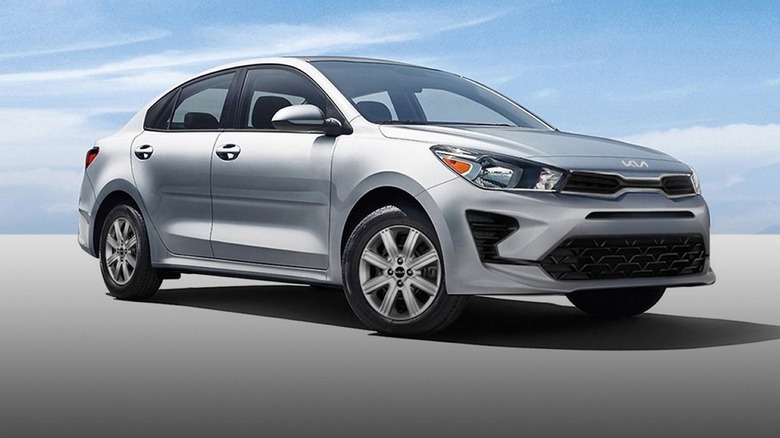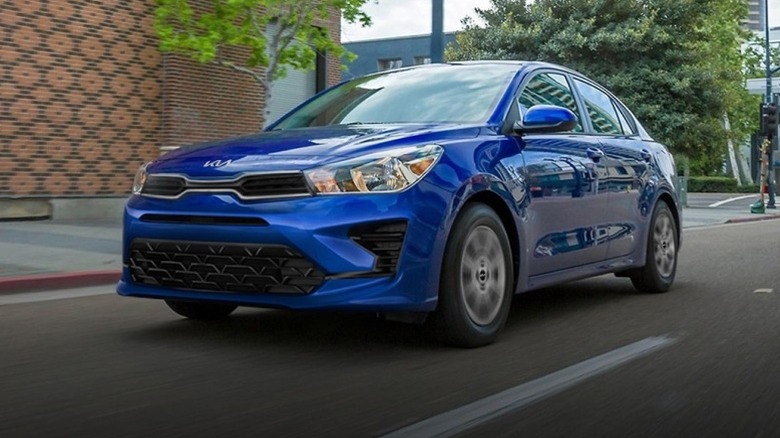Why Was The Kia Rio Discontinued?
The 2023 model year marked the end for the Kia Rio, which, despite its demise, will continue to be remembered as one of the most reliable Kia models ever made. The subcompact car is well-regarded for its dependability, and achieved a respectable J.D. Power reliability rating of 86 out of 100 for the 2022 and 2023 model years. The Kia Rio was also the go-to choice for those seeking a reasonably priced runabout that wouldn't leave them with hefty repair bills, with its average annual maintenance costs coming in at $434, according to RepairPal data. This is all the more impressive when you consider that it was available for under $20,000, with the 2023 model starting at $16,750 (MSRP).
Sadly, even affordable vehicles like the Kia Rio, despite offering impressively low average repair and running costs, are not spared from declining sales of sedans amid the SUV craze we've witnessed over the last decade. Kia didn't cite specific reasons for discontinuing the Rio, but we can infer some possible factors based on the market dynamics.
Why Kia discontinued the Rio in the US
One plausible explanation for the discontinuation of the Kia Rio is poor sales, which is hardly surprising if you look at the numbers. In 2020, for instance, the Kia Rio sold in small numbers, with the automaker only managing to move 23,927 units of the subcompact car, according to GoodCarBadCar. Sales increased to 31,362 units in 2021 but tumbled down soon after to 27,065 units in 2022 and then to 26,801 units in 2023. Kia Rio's sales woes weren't limited to its recent performance either, as it struggled to gain traction throughout its recorded history, even amid strong commercial demand for sedans and hatchbacks back in the day. Between 2005 and 2023, the subcompact car failed to capture much of the affordable car market, with sales hovering between 16,760 and 43,873 units.
Also, with vehicle production shifting greatly from cars to SUVs in recent years due in part to high SUV demand, it's quite possible that Kia killed the slow-selling Accent in order to focus on its SUV lineup, much like parent company Hyundai did with the deceased Hyundai Accent. The International Energy Agency (IEA) in a 2021 post stated that there were over 35 million more SUVs worldwide compared to the year before. And, the high-riding vehicles have shown no signs of slowing down since, with SUVs making up nearly half of all car sales worldwide (48 percent) in 2023, according to a separate IEA data. In light of these details, it makes perfect economic sense for Kia to discontinue the Rio and instead focus on vehicles that currently catch the eyes of U.S. drivers.

